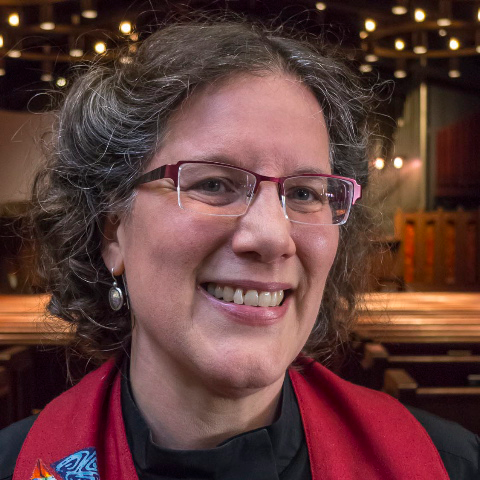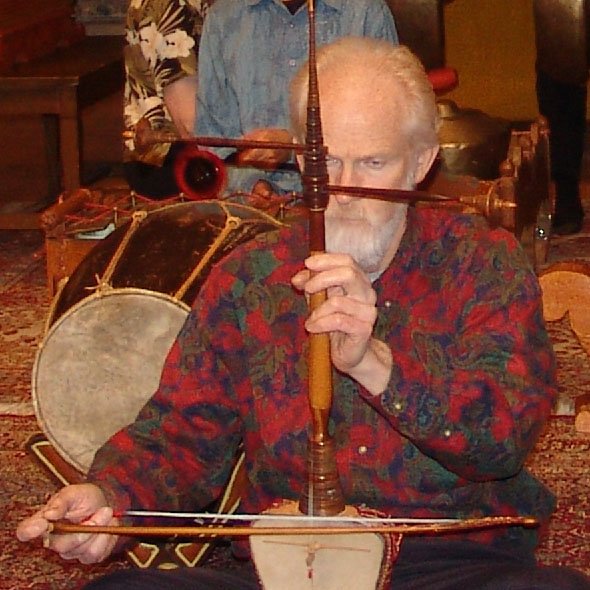 {podcast_episode 177}
{podcast_episode 177}
I’m talking today about how myths and fairytales can guide us through the crises of midlife and beyond.
My problem with mid-life crises is that I don’t know the end-point so I can’t exactly divide that by two and find the middle, so I just go on having crises… To make it through the upheavals of life, we need hope. And hope is the essence of a fairytale—the hope that we will make it through, the hope that we’ll live long, and live with integrity and joy.
Fairytales tell our children: you will survive sibling rivalry. They tell us, ‘You’ll go to the ball and marry the handsome prince despite your wicked siblings.’ The puny third son will solve the impossible riddles to save his life and he’ll win the princess. Fairytales tell our children: ‘Like Snow White, you’ll wake up safe in the arms of the handsome prince despite a toxic mother. You will fulfill those impossible tasks life sets you and find work and love.
Their deep wisdom keeps these tales ever fresh as they are told and retold over millennia. Fairytales sneak into the Bible, too. They’re reworked to teach theology but the eternal human themes show through.
But fairytales are not just for kids. They’re for grownups, too. Navigating adulthood and living longer ain’t easy. We need paradigms to face the unexpected and cherish hope.
Fairtales give us some navigational charts, and the hope that we’ll get through the storms of mid-life and beyond.
The storms of mid-life strike as we realize that we can’t fulfill much more of our youthful ambitious dreams than we already have. We’re in choppy waters as we recognize that behavior that seemed so central to our identity has either lost its attraction or seems no longer do-able—and new, unfamiliar and even embarrassing thoughts and needs press into awareness. Typically, in their later years, men become more peaceful, more nurturant, more spiritual. Women become more bossy and bawdy, and competitive.
Then these changes shake up our relationships with those we care about, and we’re forced into new patterns.
Perhaps the most difficult for us to grasp, we find that our most basic understandings of right and wrong, reward and punishment, must be transformed, or we will be left joyless and dissatisfied with ourselves and others as we age.
Finally, though, if we can use our gifts to meet the challenges of aging, what we do and how we do it may become the light that guides and gives hope to others.
The story, Fortune and the Woodcutter, has much to tell us about all of these.
The hero, the woodcutter, is old, he feels exhausted—“…the old man finally had enough.” He feels like a failure—“…no matter how hard he struggled, he could not succeed in life.” He faces the empty nest since his sons have left home. Then, to top it all off, his wife is a scold!
He is furious at his fate. No more work! He just wants to “stay in bed.” He won’t even unload the mules when they get home with their treasure. “If I’ve told you once, I’ve told you a thousand times. I’m not working anymore.” He’s angry, withdrawn and passive—dare I say depressed?
But his wife is in a very different place. She “reasoned, cried, and yelled” to try to get him up and back to working. Now she’s the active one. The wife unloads the mules and finds the treasure.
What did the couple do with the treasure? They passed it on to the next generation and shared it with the poor, and still were “rich as rich could be.“
At the heart of the story is a mysterious character, the stranger—
“…no ordinary man, but a magician, and he had learned where a great treasure lay. So he went there….”
He’s so dangerous he flees from the soldiers passing by.
I propose that this mysterious stranger who mines such treasures is actually a part of the woodcutter himself.
It’s a part of him that he doesn’t know, and doesn’t want to know. Like the elves that finish the shoemaker’s work while he sleeps, this hidden part of the woodcutter’s self digs for treasure while he sulks in bed.
We do have a problematical stranger—who lies deep within ourselves—who mines from the depths a special kind of treasure. If it were the literal gold and jewels of this world, such wealth could be lost or wasted or exhausted. This stranger digs up something more precious than gold or jewels, something to share with the generations that come after us, and the poor and yet it never runs out.
The fairytale of Jonah teaches us about another treasure. As we grow older, our understanding of good and evil shifts. We can no longer sort things into neat boxes of the good and the bad.
To have peace and joy in old age, while we can admit our sins and try to make amends, it won’t do to beat up on ourselves endlessly about whatever wrongs we have done, mistaken paths, and opportunities missed. And to enjoy the world, we need to let go relentlessly accusing and punishing others over their failures and lacks and sins. Otherwise like Jonah, we will burn with fury to the point of wanting to die. We need to recognize repentance and transformation in others and embrace the moral complexity of being human. We need to learn compassion and forgiveness.
Poor Jonah. He’s in the throes of a midlife crisis–a prophet who tries to run away from his work. So Jonah finds himself “at sea.” He wants to sleep through the storm—like our woodcutter who goes to bed. But Jonah is thrown overboard and has a near-death experience. When he’s spewed out, again he’s back at work: Nineveh will be destroyed in forty days. But God relents–
From Jonah’s point of view, God pulls the rug out from under him. Jonah is so mad, he wants to die.
But God says “… should I not be concerned about Nineveh, that great city, in which there are more than a hundred and twenty thousand persons who do not know their right hand from their left, and also many animals?”
The harsh justice of an eye for an eye, a tooth for a tooth, the relentless blame for sins past is set aside by compassion that accepts the mixture of good and evil that is the world, and leaves space for repentance, and transformation.
Here’s one more story that frames the challenges of our later years:
The Shining Fish
Once upon a time, an old man and his wife lived in a house overlooking the sea. Through the years, all their sons died, leaving the old couple in poverty and loneliness. [The empty nest, again.] The old man barely earned a living by gathering wood in the forest and selling it in the village. One day in the wilderness, he met a man with a long beard. [the stranger again!] “I know all about your troubles,” the stranger said, “and I want to help.”
He gave the old man a small leather bag and when the old man looked in it, he fainted with surprise: the bag was filled with gold! By the time the old man came to, the stranger was gone. So the old man threw away his wood, and rushed home.
But along the way, he began to think, “If I tell my wife about this money, she will waste it all.” And so when he got home, he just hid the money under a pile of manure.
The old man awoke next day to find that his wife had cooked a wonderful breakfast, with sausages and bread. [Notice that he was asleep while his wife was working.]“Where did you find the money for this?” he asked his wife.
“You did not bring any wood to sell yesterday,” she said, “so I sold the manure to the farmer down the road.” The old man ran out, shrieking with dismay. Then he glumly went back to work in the forest.
Deep in the woods, he met the stranger again. The man with the long beard laughed. “I know what you did with the money, but I still want to help.” So he gave the old man another purse filled with gold. The old man rushed home, but along the way he started thinking again. “If I tell my wife, she will squander this fortune.” And so he hid the money under the ashes in the fireplace.
The next day he woke to find his wife had cooked another hearty breakfast. “You did not bring back any firewood,” she explained, “so I sold the ashes to the farmer up the road.”
The old man ran deep into the forest, pulling out his hair in consternation. There, he met the stranger a third time. The man with the long beard smiled sadly. “It seems you are not destined to be rich, my friend, but I still want to help.” He offered the old man a large bag. “Take these two dozen frogs, and sell them in the village. Then use the money to buy the largest fish you can find.” With that the stranger vanished.
The old man hurried to the village and sold his frogs and bought the largest fish he could find. He returned home too late at night to clean the fish, so he hung it outside from the rafters. Then he and his wife went to bed.
That night, it stormed, and the old man and woman could hear the waves thundering on the rocks below their house. In the middle of the night, someone pounded on the door.
The old man went to see who was there, and found a group of young fishermen dancing and singing outside.
“Thank you for saving our lives!” they told the old man.
“What do you mean?” he asked.
So the fishermen explained that they were caught at sea by the storm, and did not know which way to row until the old man put out a light for them. “A light?” he asked. So they pointed. And the old man saw his fish hanging from the rafters, shining with such a great light it could be seen for miles around.
From that day on, the old man hung out the shining fish each evening to guide the young fishermen home, and they shared their catch with him. And so he and his wife lived in comfort and honor the rest of their days.
There are several things we should take from the story for our lives. As a recovering attorney, I’ll remind you that California is a community property state, and you will not prosper if you try to hide your gold under the manure pile to keep it from your spouse.
Once again, our old hero meets a mysterious stranger who tries to help, but the magical help is useless because the old man won’t share it with his wife.
But once he no longer tried to hide his “light,” all went well for the old man, his old wife, and the young fishermen who are stand-ins for all the rest of the world.
That light reminds me also of that greatest of magicians and Fisher of men, that hero of so many sacred fairytales, whose words speak to us over centuries—[Matthew 5.14]
“You are the light of the world… No one after lighting a lamp puts it under the bushel basket, but puts it on the lampstand, and it gives light to all in the house. In the same way, let your light shine before others…”
All these stories tell us: let your light shine. Let what you find within yourself be an inexhaustible treasure of light and hope for all. And when you are deep in the throes of life’s crises, remember that magical stranger who wakes while you sleep, and knows your needs and your heart.
May it be so.
Copyright © 2014, Rev. Carrie Knowles. All Rights Reserved.


















